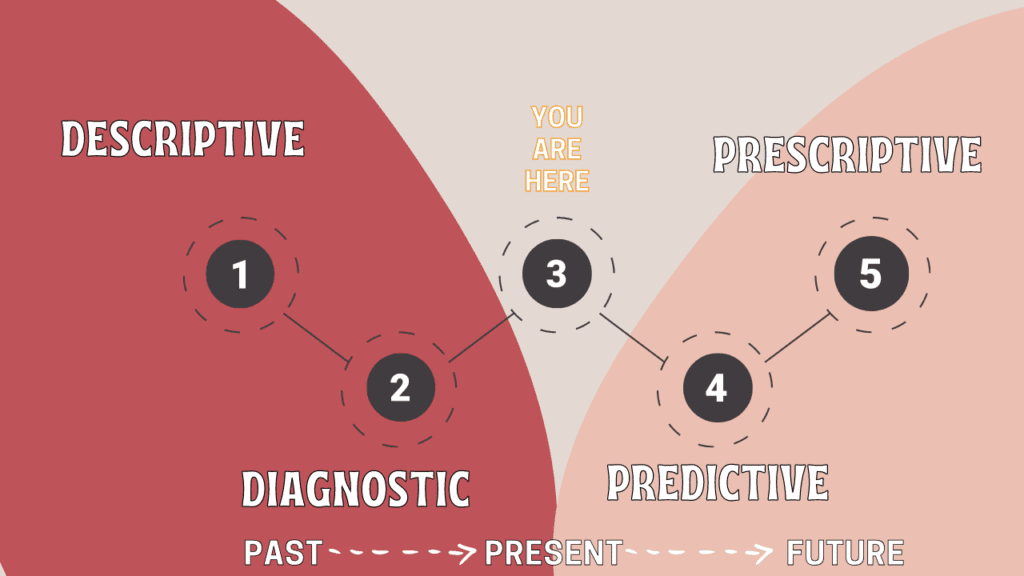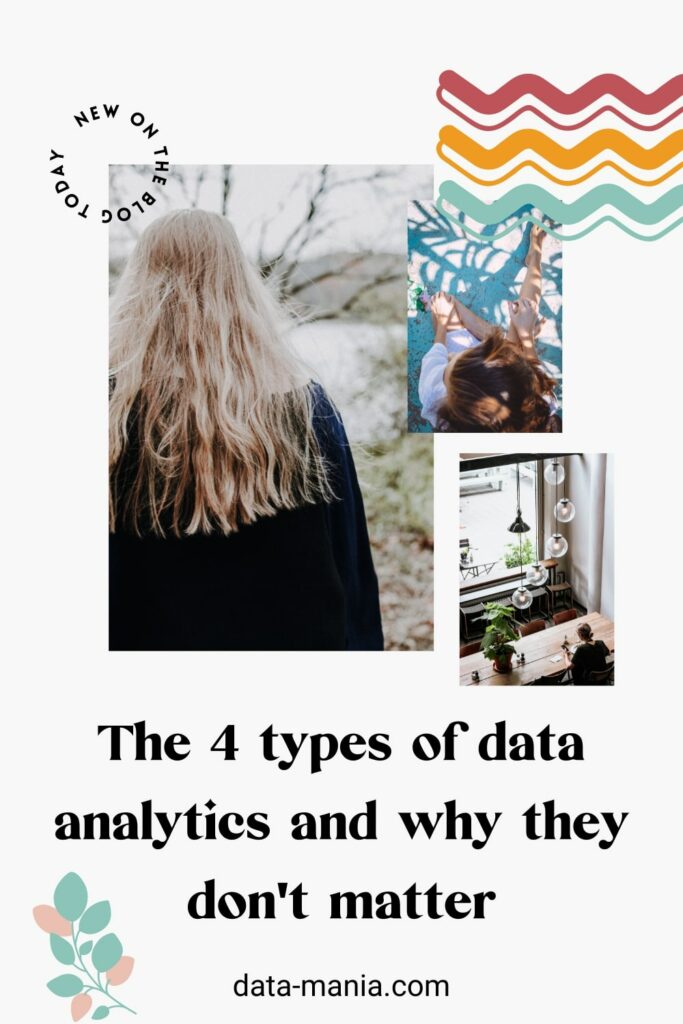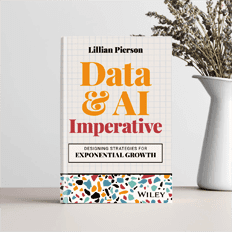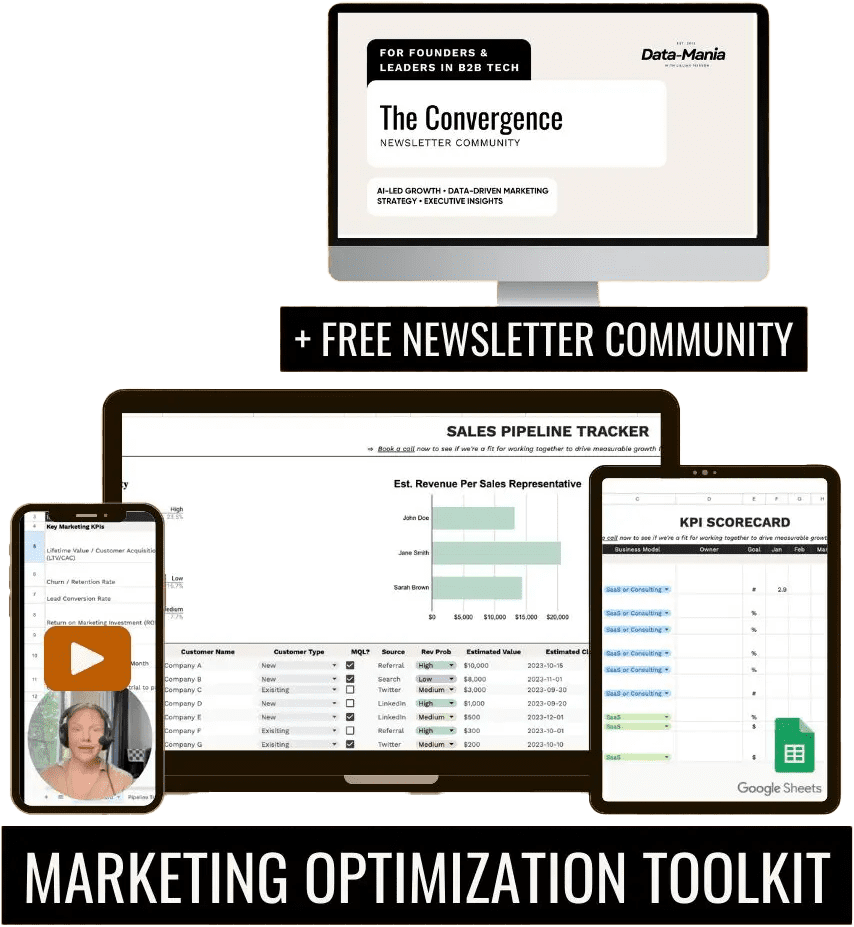Here’s the thing about the 4 types of data analytics – If you’re new to the data field then you may be curious about the 4 types of data analytics, but if you’ve been around a while – you may be wondering why people are still talking about them. If either of these are you, then stay tuned because I’m about to answer those questions in this post.
I’m also going to share with you an awesome example – that you can pattern after – of the classic “4 types of data analytics” topic DONE RIGHT!
YouTube URL : https://youtu.be/cGAFFgIBgQ0
If you prefer to read instead of watch then, read on…
For the best data leadership and business-building advice on the digital block, subscribe to my newsletter below and I’ll make sure you get notified when a new blog installment gets released (each week). 👇
[convertkit form=5131701]
Get to Know Me…
In case you’re new to the community – Hi, I’m Lillian Pierson and I help data professionals transform into world-class data leaders and entrepreneurs…
I’ve just spent the last 6 months both refreshing and rewriting my third edition of Data Science for Dummies, and the discussion about the 4 types of data analytics needed to get weaved in there somehow, so I decided to cover this topic now.
I’ve been a full-time data professional for the last 9 years, 8 of which have been through my own data business… For now – I wanted to teach you a little about data analytics and also give you a data industry insider perspective on how to better position yourself in the online data sector.
I am not going to spend much time defining the analytics types because it’s simple and I assume you already know… the important part of this post is the part about why they don’t actually matter, but for clarity purposes, let’s have a look at the each type of analytics first…

Descriptive Analytics
Descriptive – Describe what happened in the past
- Descriptive analytics are built off of current and historical data sets and they answer the questions: “what,” “when,” “how many,” and “where” something happened.
- It is the most basic type of data analytic
- The deliverables include: Ad hoc exploration and reporting or even canned reports
Diagnostic Analytics
Diagnostic – Why it happened in the past
- It is commonly used in engineering and in the sciences, they basically answer questions like:
- “Why did something happen?”
- “How will we know if it happens again?”
- They’re great for diagnosing problems in systems or in sub components of processes.
I’d love to hear from you about your experience working with any of the 4 types of data analytics. Let me know in the comments!
Predictive Analytics
Predictive – Uses correlation to predict what will happen in the future if nothing changes
- It is more in the domain of the data scientists or analysts because you use correlation analysis to uncover correlation between variables
- It is built on top of both current and historical datasets
- They use statistical and mathematical methods to predict future events or trends
Prescriptive Analytics
Prescriptive – What will happen in the future if we take this prescribed course of action
- This is the domain of data scientists who predicts what will happen in the future if they take a prescribed course of action
- It is usually built on top of a whole series of:
- Random testing
- Experimentation
- Optimization
- Recommendations
The biggest thing you need to take away from this whole 4 types of analytics thing is that:
You can’t accurately predict the future if you don’t have an accurate picture of what happened in the past. – Albert Einstein
What this means is – to create prescriptive and predictive analytics, you must have accurate descriptive and diagnostic analytics first.
If you’re enjoying this discussion on the 4 types of analytics then you’d love my video on the Top 5 Reasons Not to Become a Data Analyst. Check it out here.
Why the 4 Types of Analytics Don’t Matter


Honestly, there is so much noise on the internet now in the data space, that it’s completely overwhelming. It could push people away from even looking at online communities for new and fresh information, just because so many people are saying the same thing – and finding something truly valuable and meaningful is like finding a needle in a haystack.
Now, you do not want to contribute to the noise when discussing the 4 types of data analytics. This topic is still relevant, of course, and you still need to know them. If you’re a data professional then, you gotta bake in the “WHY” into that conversation. What you don’t want to do is repeat the same generic thing that you’ve heard other people say, because it’s not novel, it’s not new and it doesn’t really need to be said again. Not only does it contribute to the noise problem within the data community, but it’s also a waste of your precious time – and really, your time is the most valuable asset you have. So, when you take the time to share something online, just make sure that it’s actually meaningful and helpful to your intended audience.
“Types of Data Analytics” Discussion Done Right
When I say this – I mean that these conversations are done in a meaningful way with lots of context and purpose, so it’s not just rehashing the same information, but it helps you apply that information to actually get some sort of results in your career or data business (if you’re an entrepreneur).
First, let’s look at my buddy Ken’s video on “The 4 Types of Sports Analytics Projects”
What I love about this video is, it talks about the types of analytics projects that you can do WITHIN THE SPORTS INDUSTRY in order to attract paid opportunities to work as a data analytics professional. This is good because it is applied to a specific industry which is sports. It has a purpose – to help people get experience and work as a sports analyst. And it incorporates the 4 types of data analytics without mindlessly rehashing what they are and then not giving an outcome. If you want to create content about the 4 types of data analytics, try to do something applied like Ken’s example here.
Another cool example I found was by a company called Retalon. Retalon is an award-winning provider of advanced retail predictive analytics & AI solutions for supply chain, planning, merchandising, inventory management, pricing optimization, with a transformational approach to the retail industry.
How are they using this conversation to get traction for their data business?
Well, by targeting and narrowing it down to their ideal client. Not by posting the same old, same old – but by getting super specific with their data expertise and the content they are publishing around that expertise. They have retail clients in the fashion industry, so instead of creating a blog post on the 4 types of data analytics – which has been covered everywhere by everyone – they apply the 4 types of analytics to a specific industry that their business supports – fashion. And guess what – Google Search is awarding them for the usefulness of their content by giving their post a high ranking and sending traffic.
Why Talk About the 4 Types of Data Analytics in 2021
This is how and why it would make sense to talk about the 4 types of data analytics in 2021. It is simply because the data field is pretty darn mature compared to what it was 10 years ago. So, we need to keep maturing, progressing and evolving in our conversations about data analytics or data science. We should also learn how to use these super powers to make the world a better place.
This video is not really about the 4 types of analytics at all. It’s about having meaningful, relevant conversations about analytics or data science. It’s important because the conversations about those two topics actually have an impact on the people who are involved. This content itself was meant to add value in terms of helping other data professionals. This help includes getting their message out to the world and getting more traction in their career. This can be done by being more specific and more contextual with their communications.
Now, if you’ve enjoyed this meta discussion about data analytics, then I’m pretty sure you’re gonna love my data superhero quiz.
It is a super-fun, 45-second quiz. The quiz is about you and how your personality type aligns with the top 50 data roles that companies are actively hiring for.
Take the Data Superhero Quiz Today!
Also, I’d love to see you inside my free Facebook community for data professionals who are working to become world-class data leaders and entrepreneurs.
Join our community here.
Hey, and if you liked this post, I’d really appreciate it if you’d share the love with your peers by sharing it on your favorite social network by clicking on one of the share buttons below!
NOTE: This description contains affiliate links that allow you to find the items mentioned in this article and support the channel at no cost to you. While this blog may earn minimal sums when the reader uses the links, the reader is in NO WAY obligated to use these links. Thank you for your support!





